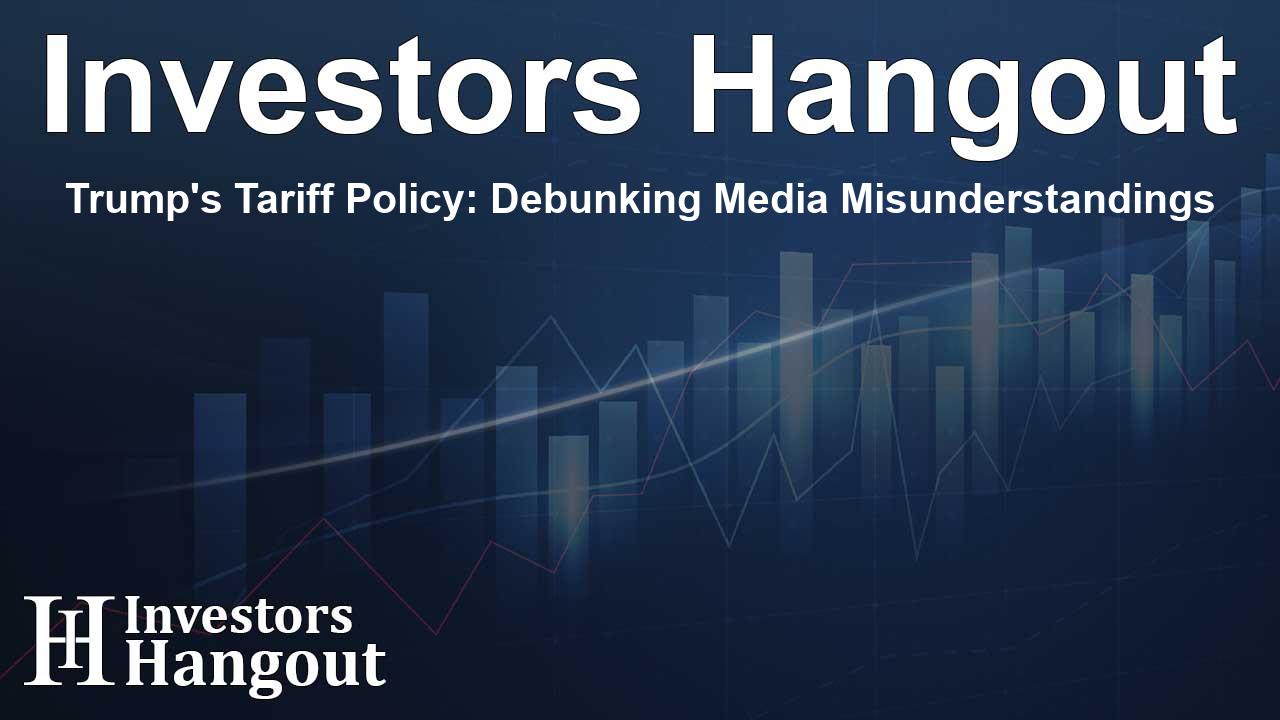Trump's Tariff Policy: Debunking Media Misunderstandings

Trump's Response to Tariff Speculation
U.S. President-elect Donald Trump has recently taken to his social media platform, Truth Social, to challenge a report from a major news outlet. He stated that his administration is not contemplating a widespread tariff application to all countries, focusing instead on specific critical imports. Responding to the narrative, he branded the article as 'fake news,' emphasizing a need for accurate reporting.
Details from the Report
The report in question referenced anonymous sources and indicated that discussions were taking place about imposing tariffs primarily on sectors deemed essential for national security or economic stability. This nuanced approach appears to diverge significantly from the bold pledges Trump made during his campaign for the presidency in 2024.
Market Reactions
This speculation regarding tariffs generated a positive surge in European stocks and currencies, hinting at market optimism over a potentially less strict tariff strategy by the incoming administration. Investors often react strongly to trade policy changes, as these can greatly influence business operations and global trade dynamics.
Trump's Campaign Promises
During his campaign, Trump laid out ambitious protectionist plans, which included imposing a 10% tariff on all imports and a staggering 60% tariff specifically on Chinese goods. Economists have raised concerns about the potential repercussions, warning that such tariffs could lead to strained trade relationships and increased costs for consumers.
Key Sectors Under Discussion
According to the article, preliminary discussions within Trump's team have highlighted certain crucial sectors that they hope to revitalize domestically. These sectors include the defense industrial supply chain, critical medical supplies, and energy production. The emergence of such sectors as focal points for potential tariff implementation suggests a strategic approach to fortifying U.S. manufacturing capabilities.
Targeted Economies and Imports
The report further indicated that the sectors of focus may see tariffs on various imports, like steel, aluminum, and copper, along with essential medical supplies such as syringes and vials, and critical technology components like batteries and solar panels. The emphasis on revitalizing domestic production in these areas points to a broader strategy of enhancing national self-sufficiency.
Clarifying Tariff Policies
In light of the prevailing report, Trump reiterated that misunderstandings regarding his tariff policies are widespread. He maintained that there is no intention to scale back on any discussed tariff strategies, although he did not provide in-depth details regarding how these policies will eventually materialize.
Moving Forward: The Economic Outlook
As Trump's administration prepares to take office, the potential for a revised approach to tariffs remains a critical topic for economists and policymakers alike. Observers will be keenly watching how these discussions unfold and what implications they may have for global trade, domestic industries, and overall economic health.
Frequently Asked Questions
What are the main points of Trump's tariff policy?
Trump's tariff policy seems to be focused on specific sectors critical to national security, rather than an across-the-board tariff for all imports.
How did the markets react to the tariff discussions?
European stocks and currencies reacted positively to the news, seeing it as a sign of a potentially less aggressive tariff policy moving forward.
What sectors could be impacted by potential tariffs?
Sectors such as defense, medical supplies, and energy production are likely to be affected, including tariffs on steel, aluminum, and certain technology imports.
Did Trump clarify his tariff stance?
Yes, Trump emphasized that the report misrepresented his plans, stating he does not intend to lessen his tariff strategies.
What concerns do economists have regarding tariffs?
Economists are worried that aggressive tariffs could disrupt trade relationships and lead to increased costs for consumers, affecting the overall economy.
About Investors Hangout
Investors Hangout is a leading online stock forum for financial discussion and learning, offering a wide range of free tools and resources. It draws in traders of all levels, who exchange market knowledge, investigate trading tactics, and keep an eye on industry developments in real time. Featuring financial articles, stock message boards, quotes, charts, company profiles, and live news updates. Through cooperative learning and a wealth of informational resources, it helps users from novices creating their first portfolios to experts honing their techniques. Join Investors Hangout today: https://investorshangout.com/
Disclaimer: The content of this article is solely for general informational purposes only; it does not represent legal, financial, or investment advice. Investors Hangout does not offer financial advice; the author is not a licensed financial advisor. Consult a qualified advisor before making any financial or investment decisions based on this article. The author's interpretation of publicly available data shapes the opinions presented here; as a result, they should not be taken as advice to purchase, sell, or hold any securities mentioned or any other investments. The author does not guarantee the accuracy, completeness, or timeliness of any material, providing it "as is." Information and market conditions may change; past performance is not indicative of future outcomes. If any of the material offered here is inaccurate, please contact us for corrections.